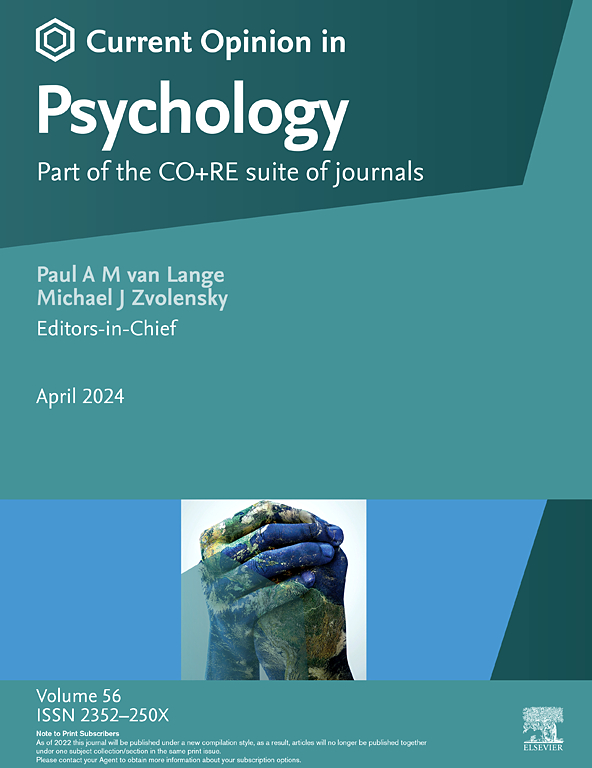Majority rule: Do minorities live in ‘tighter’ social worlds?
IF 6.3
2区 心理学
Q1 PSYCHOLOGY, MULTIDISCIPLINARY
引用次数: 0
Abstract
Exploring social norms through a diversity perspective, this review examines whether minorities live in ‘tighter’ worlds, wherein they are subject to stricter rules and punishments. Integrating research from psychology, economics, and organizational behavior, we first examine whether minorities are more likely to have tightness imposed on them—i.e., receive more monitoring and harsher penalties in response to norm violations, compared to their majority counterparts. Turning to the subjective experience of minority group members, we explore whether minorities are calibrated to these penalties and experience greater lived tightness—the feeling of being chronically surveilled, judged harshly, and fearing excessive punishment for wrongdoing. We suggest that both imposed and lived tightness contributes to power inequalities and patterns of segregation. This framework helps to organize disparate research streams investigating minorities' experience of social norms, and highlights unanswered questions about when, and why, minority group members feel more constrained by social rules, as well as the consequences of these experiences for their economic and psychological well-being.
少数服从多数:少数群体是否生活在 "更紧密 "的社会世界中?
本综述从多样性的角度探讨社会规范,研究少数群体是否生活在 "更严格 "的世界中,他们是否受到更严格的规则和惩罚。结合心理学、经济学和组织行为学的研究,我们首先考察少数群体是否更有可能受到约束--即与多数群体相比,他们在违反规范时会受到更多的监督和更严厉的惩罚。关于少数群体成员的主观体验,我们探讨了少数群体是否对这些惩罚进行了校准,并体验到了更多的 "长期被监视、被严厉评判以及害怕因错误行为而受到过度惩罚的感觉"。我们认为,强加的和生活中的严密性都会造成权力不平等和隔离模式。这一框架有助于整理调查少数群体社会规范体验的不同研究流派,并强调了关于少数群体成员何时、为何感到更受社会规则约束以及这些体验对其经济和心理健康的影响等未决问题。
本文章由计算机程序翻译,如有差异,请以英文原文为准。
求助全文
约1分钟内获得全文
求助全文
来源期刊

Current Opinion in Psychology
PSYCHOLOGY, MULTIDISCIPLINARY-
CiteScore
12.10
自引率
3.40%
发文量
293
审稿时长
53 days
期刊介绍:
Current Opinion in Psychology is part of the Current Opinion and Research (CO+RE) suite of journals and is a companion to the primary research, open access journal, Current Research in Ecological and Social Psychology. CO+RE journals leverage the Current Opinion legacy of editorial excellence, high-impact, and global reach to ensure they are a widely-read resource that is integral to scientists' workflows.
Current Opinion in Psychology is divided into themed sections, some of which may be reviewed on an annual basis if appropriate. The amount of space devoted to each section is related to its importance. The topics covered will include:
* Biological psychology
* Clinical psychology
* Cognitive psychology
* Community psychology
* Comparative psychology
* Developmental psychology
* Educational psychology
* Environmental psychology
* Evolutionary psychology
* Health psychology
* Neuropsychology
* Personality psychology
* Social psychology
 求助内容:
求助内容: 应助结果提醒方式:
应助结果提醒方式:


